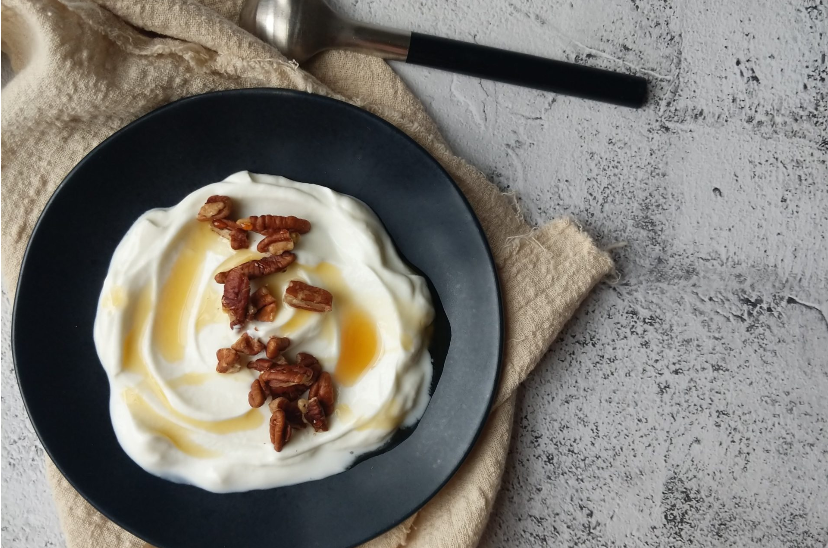
How Long It Takes for a Probiotic to Work + Telling Signs
Bacteria often gets a bad rap—but did you know that there’s such a thing as good bacteria? Probiotics, in particular, are made up of these good-for-you bacteria that survive inside your intestine after being eaten.
Probiotics have many important functions in the body, including supporting digestion, managing vitamin breakdown and formation, keeping bad bacteria at bay, and modulating overall gut health. In the face of widespread declining gut health today, supplementing with a probiotic is often recommended.
But how long does it take for a probiotic to work?
In this guide, we’re answering that key question. We’ll also touch on factors that influence probiotic speed, explore how probiotics work within your body, discuss telltale signs of probiotic effectiveness, and more.
Jump straight to:
- Factors Influencing Probiotic Efficiency
- What Happens to the Body When You Take Probiotics
- How to Tell If Probiotics Are Working
- SIgns That Probiotic Is Not Working
- How Long for a Probiotic to Start Working
- How to Choose the Right Probiotic
- Optimal Probiotic Intake
Factors Influencing Probiotic Efficiency
While most people will notice effects within 2 to 3 weeks, the truth is that the probiotic effectiveness timeline is unique for everyone. However, there are a few factors that can influence how quickly you’ll see results:
Read more: The Best Probiotics for IBS Diarrhea [Strains & Brands]
What Happens to Your Body When You Start Taking Probiotics?
There are three different mechanisms of action that apply to probiotics:
Let’s start with non-specific mechanisms—the things happening in your body no matter which probiotic products you use:
Some species-specific mechanisms include toxin neutralization, vitamin production, bile breakdown, and enzyme activity.
To put it simply, probiotic bacteria find a home in your digestive tract, reproduce, and influence various gut functions as their colony grows.
How Do You Know If the Probiotic Is Working?
While you can’t see any of the actions above, there are a few ways to tell if they’re happening inside your body. Let’s touch on a few telltale signs that your probiotic bacteria have started to take effect.
Regular Digestion and Bowel Movements
Improved overall digestion tends to be a top sign that a probiotic is truly working in your favor. When you have an infection, show other signs of constipation, or have diarrhea, a probiotic can step in to restore a natural balance of bacteria. Probiotics have been found to increase daily bowel movements as well as soften stool, making it easier to pass through the body.
But probiotics don’t just make you poop more often—they can also:
- Increase bowel motility (i.e., speed up the movement of waste through your GI tract)
- Increase the number and overall weight of stools
- Promote consistency (i.e., make your bowels more regular or predictable)
If you’ve noticed any of the above effects, your probiotic is likely working as intended.
Minimized Bloating and Gas
A major plus of using the right probiotic is reducing bloating and gas. Using a targeted, high-quality probiotic supplement can help restore the microbiome’s balance of good and bad bacteria. Doing this can help repair the gut and increase levels of healthy microflora.
In a recent study of people living with Irritable Bowel Syndrome, a probiotic product helped study participants mitigate symptoms like:
- Abdominal pain
- Gassiness
- Bloating and cramping
Whether you’re trying to overcome a specific GI challenge or you want to reduce occasional discomfort, limited bloating and gassiness is a sign that your probiotic is working.
Read more: Best Probiotics For IBS Constipation
Increased Immunity
Say goodbye to those pesky colds!
Probiotics have been shown to help increase the body’s immunity by aiding in proper digestion and increasing nutrient absorption. In fact, more than half the cells that create antibodies for fighting sickness are in the intestines and in the gut.
Repairing the gut lining can take much-needed stress off the gut, which gives the body more energy to focus on fighting off sickness.
Better Mood
There has been a strong link found between the brain and gut connection:
- Many of the same neurotransmitters in the brain are produced in the gut.
- The gut is responsible for producing nearly 90% of the serotonin in the body as well as dopamine and gamma-aminobutyric acid which also play a big role in regulating moods and feeling good.
Beyond supplements and products, knowing what types of food and lifestyle choices are harmful to gut health is important. Frequently consuming alcohol, sugar, and highly processed foods can increase inflammation in the body and lead to weight gain, skin irritations, and increased exhaustion. So, next time you’re at the store, consider picking up some probiotic-rich fermented foods and beverages to enrich your diet and health.
Read more: 7 Anti-Inflammatory Foods to Incorporate into Your Diet Now
Signs Your Probiotic Is Not Working
On the other hand, your probiotic might not be working if:
However, remember that:
How Long Does It Take for a Probiotic to Work
As we mentioned, the effects timeline can look different for every probiotics user. However, you should notice some effects relatively quickly if you’re using probiotics per the product instructions:
- Within the first few days of using a probiotic, you may actually experience some discomfort. This could include cramping, bloating, or changes to your bowels as your body adjusts to the influx of good bacteria.
- In the first few weeks of your probiotics course, you may start to notice small changes to your digestive activity: slightly more frequent bowel movements, slightly larger stools, or slightly decreased bloating.
- After a few months of probiotic use, your body will start to settle into a new normal. Your bowel movements may become very regular (around the same time each day, even), you may find that you’re less susceptible to minor illnesses like the common cold, or you may be in better spirits. These are all possible with the help of the right probiotic formula.
How to Choose the Right Probiotic for You
What should you look for in a probiotic? Here are a few tips from experts:
- Look for formulas containing strains of both Lactobacilli and Bifidobacteria. The yeast Saccharomyces boulardii could also provide positive results. However, scientists have yet to explore how every single probiotic bacteria impacts the body—don’t be afraid to try new formulas as needed.
- Probiotics should contain live cultures—living organisms that can colonize in your GI tract. In addition, there should be a non-negligible quantity of organisms in your formula. Look for numbers in the billions of CFUs (colony-forming units).
- Package labels should have specific instructions about when to use the product, how often to take it, and how much of the product you should use.
Optimal Probiotic Intake for Max Effect
Optimizing your gut health isn’t just about using one product: it requires a somewhat holistic approach. To maximize the effectiveness of your product, remember to:

Get the Best Probiotic for You
So, how long does probiotic take to work for your gut health?
Ultimately, it’s hard to say. However, when your probiotics do start working, you’ll likely notice telltale signs that your microbiome is thriving, like frequent and consistent bowel movements.
Choosing the right probiotic product is one way you might ensure timeline results. To that end, consider Vibrant Health’s array of digestion health products—formulas packed with live cultures that can help your GI biome flourish with healthy bacteria. You can always trust our products: we value truth and transparency, so you always know what you’re getting in every probiotic dose, and exactly how much of it.
Take the next step for your gut health with a high-quality probiotic from Vibrant Health.

Why Trust Vibrant Health?
At Vibrant Health, we’ve been pioneers in science-backed nutrition for over 30 years, formulating transparently sourced superfood supplements that prioritize real results. Our blog is an extension of that commitment—a trusted resource for expert-driven wellness insights.
Every article is crafted with nutrition expertise, backed by the latest scientific research, and reviewed by our in-house Certified Health Coaches and Product Educators. We break down complex health topics into practical, actionable advice—helping you make informed choices about superfoods, supplementation, and holistic wellness.As a brand that has earned thousands of 5-star reviews and the trust of health professionals, we ensure that our content reflects the same quality, integrity, and transparency as our products.
Your wellness journey deserves accurate, credible, and empowering guidance. That’s why Vibrant Health’s blog is here—to help you live a healthier, more vibrant life, backed by real expertise


